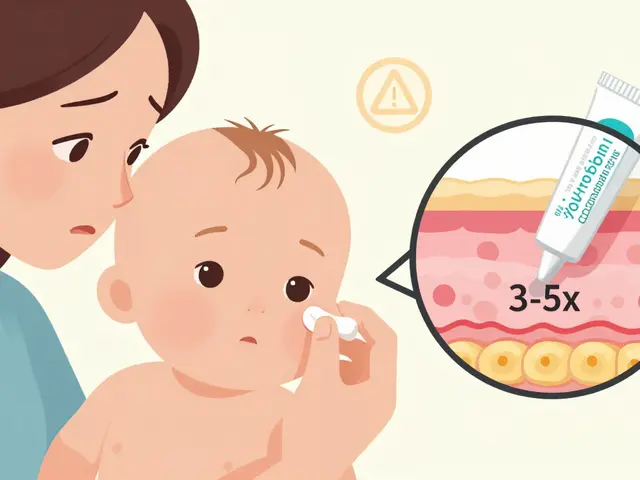Cough: Causes, Quick Relief, and When to See a Doctor
A cough is your body's way of clearing the throat and airways. It can be annoying, wake you at night, and make social life awkward. Good news: most coughs get better on their own. This short guide helps you figure out the likely cause, what actually helps, and when to call a clinician.
Common causes include colds, flu, bronchitis, allergies, postnasal drip, asthma, gastroesophageal reflux (GERD), and COVID-19. A wet, productive cough brings up mucus. A dry cough feels tight and scratchy. Which type you have points to different treatments.
Fast ways to ease a cough
Hydrate — water thins mucus and soothes an irritated throat. Try warm broths or herbal tea if that feels better.
Honey — a spoonful of honey can calm coughs in adults and children over one year. It often works as well as some OTC cough syrups for nighttime relief.
Steam and humidity — a hot shower or a humidifier helps loosen mucus and soothes dry airways. Steam inhalation and saline nasal sprays help if postnasal drip is the issue.
Over-the-counter options — guaifenesin (an expectorant) thins mucus so it’s easier to cough up. Dextromethorphan (a suppressant) can quiet a dry, hacking cough, especially at night. Follow dose instructions and avoid mixing medicines with alcohol or sedatives.
Rest — your immune system needs it. Sleep more and avoid smoking or smoky areas. Cold medicines and immune supplements won’t cure the cause, but they may relieve symptoms while your body heals.
When to see a doctor & prevention
See a doctor right away for high fever, difficulty breathing, choking sounds, or if you cough up blood. Also seek care if you have a history of heart disease or weakened immunity.
If a cough lasts more than three weeks, book an appointment. Persistent coughs can signal asthma, chronic bronchitis, GERD, or other conditions that need testing and targeted treatment.
Babies under one year with cough or trouble feeding need urgent evaluation. For children, watch for fast breathing, poor color, or listlessness.
Clinicians may listen to your lungs, order a chest X-ray, or test for flu and COVID-19. Treatment depends on the cause — antibiotics only help bacterial infections, not viruses. Asthma inhalers, reflux medications, or allergy treatments can stop chronic coughs when those are the trigger.
Quick prevention tips: wash hands, stay up-to-date with vaccines, skip contact while contagious, and manage allergies and reflux. Quit smoking and avoid secondhand smoke — that alone cuts cough risk a lot.
If you're unsure, call a clinic or use a telehealth visit. A short chat with a clinician can save weeks of discomfort.
Pregnant people should check with their provider before taking any cough medicine. Many herbal remedies sound safe but can interact with prescriptions. Keep a simple symptom diary — note when cough started, what makes it better or worse, and any other symptoms. That record helps your provider find the cause faster and save time.


